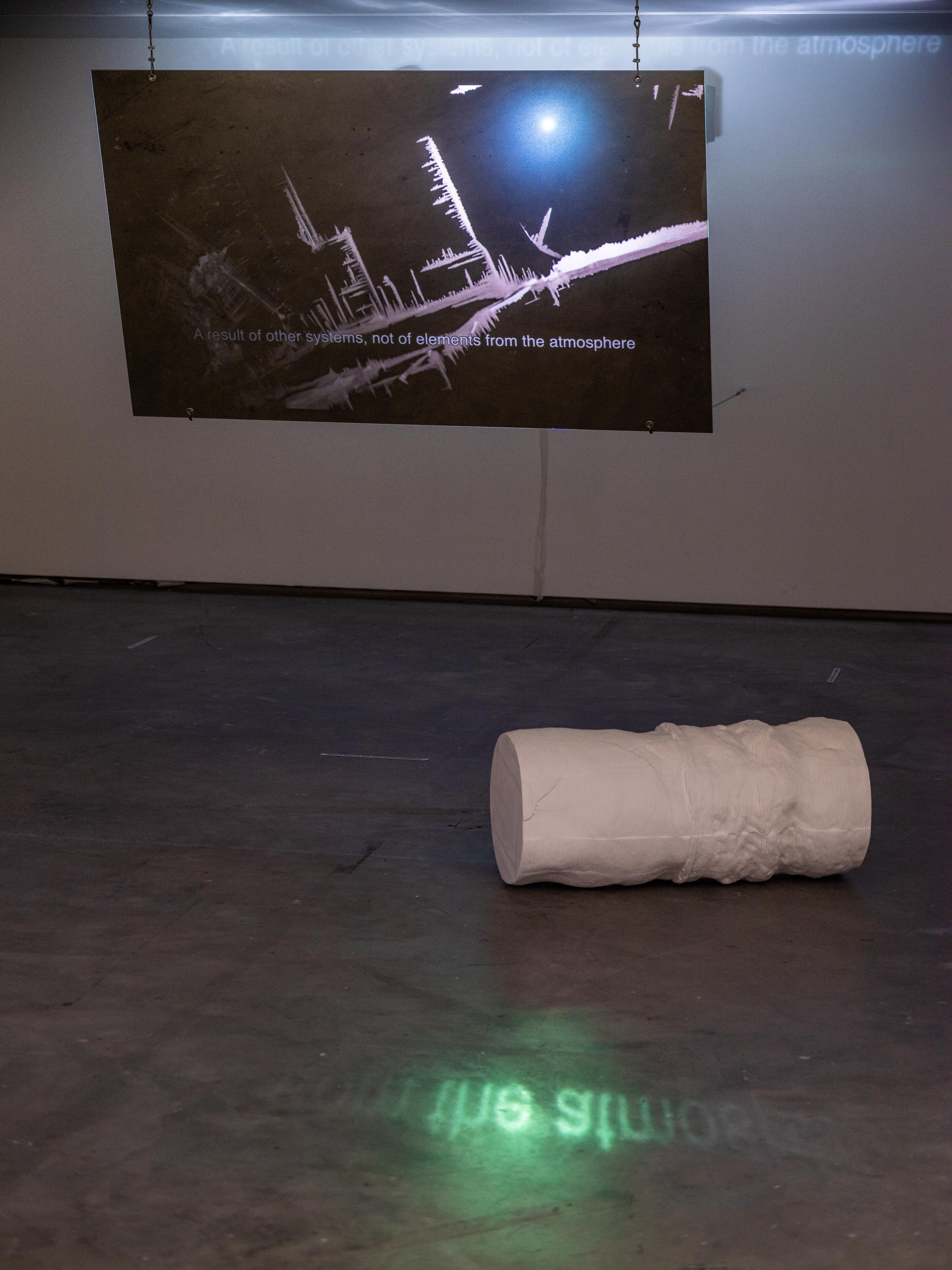Positive and Negative: Language in Imprints and Shapes / Timesample
2019
Group exhibition at Marabouparken, Stockholm

With a perspective on landscape as imprints and signs, the installation questions binary oppositions between nature and culture; geological processes and human time. The point of departure is the cliff called Stevns Klint that stretches along 14 km of coastline south of Copenhagen. The cliff shows evidence of an accidental global disaster roughly 66 million years ago that was caused by a meteor that hit the surface of the earth in Chicxulub, Mexico. Stevns Klint is one of the few places on Earth where evidence of the Cretaceous-Tertiary (K/T) boundary is exposed. It is of great geological importance due to the enormous changes in the ecosystem that among other things resulted in the extinction of the dinosaurs and occurrence of new lifeforms.
As well as the coastline, a number of other geological signs and traces from the cliff’s history are visible. Two of them are processed in the installation: The tubular flint moulds, that were once passages produced by and providing a habitat for crustaceans. Over time, the passages were transformed into flint due to a chemical reaction. Other passages were dug into the cliff and were part of a secret base for the Danish military during the Cold War.
In the video, images of the three traces from the cliff are woven togethe with a 3D model made out of images from tubular flint moulds found in a geological museum in the area. The shapes from light and shadow of the moving images is projected on a one-way mirror also used in interrogation rooms. Here it is turned around to make the spectator see oneself and the room whenever the video displays moments of black cuts between the moving images. The sculpture is a digital image of a part of the clif that shows the traces of the K/T boundary and of the “before” and “after”.






Photo: Jean-Baptise Béranger
Positive and Negative: Language in Imprints and Shape
One-way mirror wire,
192 x 118 cm
12 min
Timesample